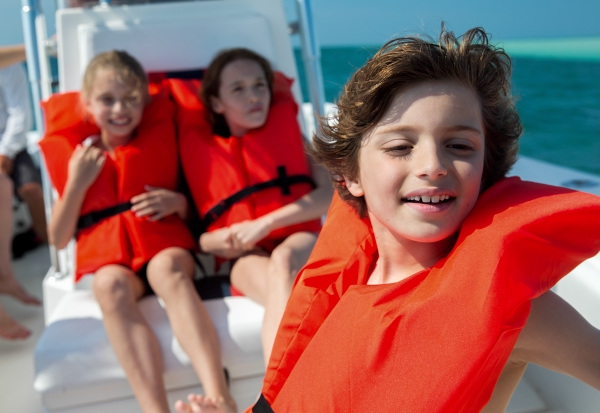
As the weather turns warmer, more water sports enthusiasts will be out on the water with their recreational powerboats and watercrafts – and accidents will happen.
According to 2015 Coast Guard statistics, 85% of drowning victims were not wearing life jackets and only 15% of deaths occurred on vessels where the operator had received a nationally approved boating safety education certificate.
Here are four important boating safety tips to help prevent boating accidents:
1. Take a course
The U.S. Coast Guard estimates that 70% of boating accidents are caused by operator error. Before you leave the dock, make sure you know the rules and your responsibilities.
There are several online courses available, including a few free courses. The BoatUS Foundation offers a free online boating safety course developed specifically for each individual state. The U.S. Coast Guard offers an additional list of online and hands-on courses for boating safety.
2. Wear your life jacket
Even if you know how to swim, it’s important to wear a life jacket. Remember, not all life jackets are the bulky, bright orange ones we remember from summer camp. Life jackets come in a variety of styles and colors, and many are thin and flexible, allowing you to move around with comfort. A life jacket is essential in saving your life if you are involved in an accident.
Life jackets aren’t the only equipment you should have at the ready. Check out our list of 7 Boat Accessories to Bring on Every Trip and make sure you are prepared for almost any situation at sea.
3. Understand the dangers of carbon monoxide
Carbon monoxide fumes can accumulate in and around your boat and unexpectedly knock you or your guests unconscious. Be aware of all the places fumes can accumulate, including:
● Inadequately ventilated canvas enclosures
● Enclosed spaces
● Blocked exhaust outlets
● Nearby boats
● When your engine is idling, running at a slow speed or stopped
4. Get your boat checked
The U.S. Coast Guard Auxiliary and the United States Power Squadrons offer free Vessel Safety Checks. There is no charge, and there are no consequences if your boat doesn’t pass. To schedule a vessel check, fill out this form.
Boat insurance is another necessity for protecting you and your family in case of accidents. Get the boat insurance that’s right for you.

No comments:
Post a Comment